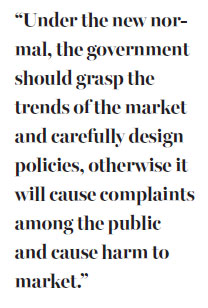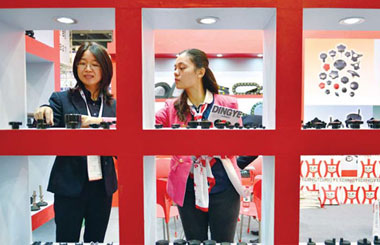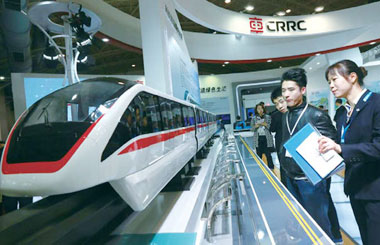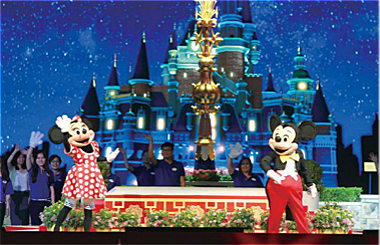Govt needs to give the market policy incentives
Updated: 2016-01-22 08:38
By Chen Gong(China Daily Europe)
|
|||||||||||
Under the economic new normal, China's government is under bigger financial pressure. The limited financial capacity of the government can be used to cover only essential costs such as salaries, education, municipal operations, water, electricity and heating systems.
It has to rely on the market to help develop new projects that the government wants but is unable to afford by itself. That said, I think government should inspire the market through incentives.
An example is the haze of pollution that has enveloped Beijing at the end of 2015, so thick that it has astonished the world and made people feel it difficult to live there. But up till now, the government hasn't had a sufficiently powerful or constructive reply to this problem. But Beijing just needs policies to open up the market and to improve financial incentives, and pollution problems will be solved through the private sector.

Beijing has a large number of office buildings and shopping malls, and with pollution being so serious, the city could launch a new indoor air quality standard. This would mean buildings would need to be equipped with new air-conditioning units with air filtration capable of bringing indoor air quality to a certain standard value. Owners and developers of these buildings have the ability to reach these standards, allowing Beijing residents peace of mind at least about air they breathe indoors.
This mandatory measure should also cover facilities such as schools and hospitals. In many schools in Beijing, including kindergartens, parents spontaneously raise money to buy air purifiers for classrooms. But under a new policy for schools and hospitals, installation of air purifiers would become standard.
People spend, on average, more than 90 percent of their time indoors. Almost all indoor space has harmful fiber and dust. The requirement to improve air quality in offices also would address the extensive use of office equipment. Computers and fax machines produce ozone and volatile organic compounds, inkjet printers emit hydrocarbons and ozone, and laser printers produce hydrocarbons, ozone and inhalable particles. All of these pollute the indoor environment.

The market demand for the purification of indoor air quality is quite big overseas. There's information shows that in the US, about 30 percent of the office buildings and public buildings have indoor air pollution, and especially in public buildings such as airports, railway stations, the air pollution challenge is bigger than that of the office building.
The global market demand was about 13 million air purifiers in 2011. In 2012, it was about 15 million air purifiers, which sees a growth of about 17 percent from the previous year. The US is the world's biggest market for the air purifier, of about 5 million air purifiers, and it is growing about 10 percent a year. Japan is the second largest market, with 3.5 million air purifiers, and China is only about 1.5 million air purifiers.
In China, as the days with heavy pollution become more frequent and people have higher requirements for air quality, the demand for air purifier also grow rapidly.
For the government, how to connect the market demand and local economic development is a difficult issue. Under the new normal, the government should grasp the trends of the market and carefully design policies, otherwise it will cause complaints among the public and cause harm to market. But if the policies are well designed, and also go with the market demand, it will be easier for the government to use market capital to help develop the economy.
The author is chief researcher of Anbound Consulting. The views do not necessarily reflect those of China Daily.
(China Daily European Weekly 01/22/2016 page12)
Today's Top News
Global push
AIIB chief vows to run clean, lean, green institution
'More Europe' to deal with 'triple crisis'
China gives beleaguered Tsipras a helping hand
China injects note of confidence in Davos
China and Gulf nations resume free trade talks
IMF starts to select new chief
Merkel insists on European solution for refugee crisis
Hot Topics
Lunar probe , China growth forecasts, Emission rules get tougher, China seen through 'colored lens', International board,
Editor's Picks

|

|

|

|

|

|






